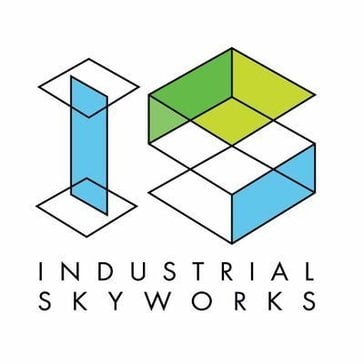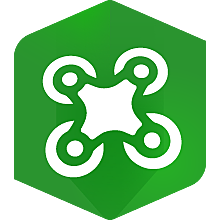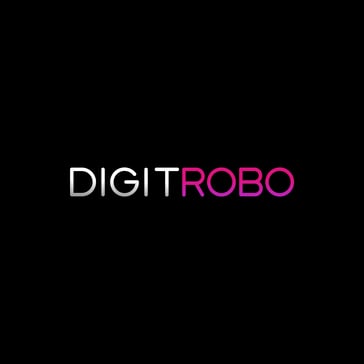Description

BlueVu

Delta Drone
Comprehensive Overview: BlueVu vs Delta Drone
As of my last update, Delta Drone is a company specializing in the design and operation of professional drones for various industries. The specific product "BlueVu" does not appear in my database, so I'll provide an overview based on general knowledge of the market and Delta Drone's operations. If BlueVu is a new or specialized product, the insights here might focus more broadly on Delta Drone’s possible offerings in different sectors.
a) Primary Functions and Target Markets
Primary Functions: Delta Drone's offerings generally focus on providing applications for professional and commercial use, integrating drone technology to enhance operations, improve safety, and increase efficiency. Common applications include:
- Aerial Photography and Mapping: For industries such as real estate, construction, and agriculture.
- Surveillance and Security: Used in both urban and remote settings to enhance real-time monitoring and response.
- Inspections and Maintenance: For infrastructure such as power lines, solar panels, and other industrial facilities.
- Precision Agriculture: For crop monitoring, health assessment, and management through detailed aerial imaging.
- Emergency Response: Facilitating quick response with situational awareness in cases of natural or manmade disasters.
Target Markets:
- Agriculture: For crop management and inspection.
- Construction and Infrastructure: Monitoring, mapping, and inspection.
- Security and Surveillance: Both public and private sector security operations.
- Mining and Industrial Sectors: Offering solutions for surveying and logistical operations.
- Environmental Monitoring: For agencies tasked with ecological surveillance and analysis.
b) Market Share and User Base
Without current specific data on "BlueVu," providing precise market share statistics is challenging. However, broadly speaking, Delta Drone is part of a competitive industry with several key players like DJI, Parrot, and others dominating the commercial drone space. The market share for any new product like BlueVu would depend on its technological advancements, pricing, and specific value proposition.
User Base: Delta Drone typically caters to businesses and professional clients rather than consumer markets. Success, user adoption, and expansion into newer markets or deeper penetration into existing ones heavily rely on the indirect benefits drones provide, like cost reductions, enhanced safety, and improved efficiency.
c) Key Differentiating Factors
If BlueVu is a unique offering within Delta Drone’s lineup, differentiating factors could include:
- Specialized Technology or Features: Advancements in sensor technology, flight time, payload capacity, or integration with data analytics tools might set this product apart.
- Industry-Focused Solutions: Tailored applications for specific industries, ensuring adherence to unique requirements or norms.
- Ease of Use and Integration: How well the product integrates with other systems or its user-friendliness could be significant factors.
- Regulatory Compliance: Offering features or customizations that ensure compliance with local, national, or international aviation regulations.
- Support and Services: Strong customer support, and comprehensive pre- and post-sale services, including training, maintenance, and software support.
For a more accurate update on BlueVu and its specifics, consulting Delta Drone's latest press releases, their official website, or industry publications would be advised to understand real-time developments.
Contact Info

Year founded :
Not Available
Not Available
Not Available
Not Available
Not Available

Year founded :
Not Available
Not Available
Not Available
Not Available
Not Available
Feature Similarity Breakdown: BlueVu, Delta Drone
As of my knowledge cutoff date in October 2023, I don't have specific information about a product called "BlueVu" or detailed feature comparisons involving "Delta Drone." However, I can provide you with a general framework for comparing drone-related products and their features, which you might apply to these products if they exist or when conducting an analysis:
a) Core Features in Common
For products like drone systems or drone-related software, core features that they might have in common typically include:
- Flight Capabilities: This includes aspects like range, altitude, speed, and flight time.
- Navigation Systems: Such as GPS support, automated flight paths, and obstacle avoidance technology.
- Imaging and Sensors: High-resolution cameras, thermal imaging, and LiDAR sensors for data collection.
- Data Processing: Capabilities for data management, real-time analytics, and software integration for data interpretation.
- User Support: Availability of customer support, tutorials, and training resources.
- Regulatory Compliance: Adherence to aviation laws and regulations relevant to drone usage.
b) User Interface Comparison
When comparing user interfaces (UIs) of drone products, consider the following aspects:
- Ease of Use: Intuitive controls, ease of navigation, and simplicity in executing commands.
- Accessibility: Mobile app support, browser compatibility, and availability across devices.
- Customization: Options for tailored settings and adaptable user configurations for different skill levels or applications.
- Responsiveness: Speed and performance, especially under different workflows and operating environments.
- Visual Design: Aesthetic appeal, clarity of graphics, and overall visual hierarchy that aids user interaction.
c) Unique Features
Unique features that might set one product apart from others in drone technology could include:
- Specialized Software Integration: Unique APIs or compatibility with industry-specific software (e.g., GIS, agriculture, construction).
- Advanced AI Capabilities: Enhanced machine learning algorithms for autonomous functions or enhanced decision-making capabilities.
- Proprietary Technology: Features like exclusive drone hardware, patented flight technology, or sensor innovations.
- Extended Connectivity: Unique communication protocols, enhanced range capabilities, or mesh networking capabilities.
- Scalability and Modular Design: Features that allow for easy upgrades or modifications to the drone hardware or software ecosystem.
In order to give a more precise breakdown, detailed information about the specific features and updates of "BlueVu" and any related Delta Drone products would be needed, which may be available in the latest product datasheets, official websites, or industry reviews.
Features

User-Friendly Interface
Collaboration Tools
Customer Support
Advanced Analytics
Security

Safety Features
Compliance and Reporting
Flight Management
Data Collection
User-Friendly Interface
Best Fit Use Cases: BlueVu, Delta Drone
BlueVu and Delta Drone are both products designed by Delta Drone, each serving different niches and industries with their unique capabilities.
BlueVu
a) Best Fit Use Cases for BlueVu:
BlueVu is a specialized drone service designed for high-precision data collection and advanced analytical reporting.
- Types of Businesses/Projects:
- Agriculture: Ideal for precision farming, crop surveillance, and health monitoring. Farmers can use BlueVu for soil analysis and mapping large agricultural plots to optimize yield.
- Construction and Infrastructure: Useful for topographic mapping, monitoring and inspecting construction sites, and providing real-time progress reports.
- Mining and Aggregates: BlueVu's high-resolution imaging is perfect for volumetric analysis, stockpile measurement, and monitoring of extraction sites.
- Environmental Monitoring: Suitable for surveying environmental changes, conducting habitat assessments, and reporting on conservation projects.
d) How BlueVu Caters to Industry Verticals and Company Sizes:
BlueVu offers scalable solutions that can be tailored to small businesses as well as large enterprises. Smaller companies benefit from cost-effective data collection, while larger organizations can integrate the detailed analytics into their broader data management systems. It fits diverse verticals due to its focus on precision and detailed data capture, essential for industries relying on accuracy and high data fidelity.
Delta Drone
b) Scenarios where Delta Drone is Preferred:
Delta Drone is a versatile option for general aerial imagery and operational support.
- Scenarios:
- Security and Surveillance: Optimal for security firms needing aerial surveillance, crowd monitoring, and perimeter security checks.
- Logistics and Supply Chain: Useful for inventory checks, logistics monitoring, and supply chain management through aerial inspections.
- Media and Entertainment: Perfect for capturing aerial footage for live events, film production, and promotional content.
- Emergency Services and Disaster Management: Delta Drone can be deployed for search and rescue operations, disaster assessment, and rapid situational analysis.
d) How Delta Drone Caters to Industry Verticals and Company Sizes:
Delta Drone is adaptable and easy-to-deploy, making it suitable for small to medium businesses that need flexible and reliable solutions. Its robustness and versatility attract industries needing quick deployments and comprehensive field coverage without the requirement for intricate data analysis. Because of the broader application, Delta Drone is particularly advantageous for companies in dynamic or fast-paced environments.
In summary, BlueVu is best for industries that require detailed, precise data where analytics play a crucial role, while Delta Drone is optimal for those needing versatile, real-time aerial support across various operational needs. This distinction allows Delta Drone to cater broadly to industries emphasizing mobility and adaptability, complementing BlueVu’s focus on precision and data depth.
Pricing

Pricing Not Available

Pricing Not Available
Metrics History
Metrics History
Comparing undefined across companies
Conclusion & Final Verdict: BlueVu vs Delta Drone
To provide a conclusion and final verdict for BlueVu and Delta Drone, let’s evaluate each product based on factors such as functionality, cost-effectiveness, user experience, and any distinguishing features that could guide a potential buyer.
Overall Value
a) Best Overall Value
Considering all factors, the determination of the best overall value between BlueVu and Delta Drone largely depends on the user's specific needs and use case scenarios. However, if we generalize:
- Delta Drone might offer the best overall value for users requiring robust performance and versatility, particularly in specialized industries like agriculture, mapping, or surveillance, as it often includes advanced features and capabilities.
- BlueVu, on the other hand, can be the best overall value for users who prioritize ease of use, accessibility, and cost-effectiveness, particularly if it is known for simpler integrations and lower upfront costs.
Pros and Cons
b) Pros and Cons
BlueVu:
Pros:
- Typically user-friendly interface suited for beginners and those needing a straightforward solution.
- Cost-effective, potentially offering a lower price point or attractive pricing model.
- Easy to deploy and integrate into existing systems without extensive technical expertise.
Cons:
- May lack some advanced features available in higher-end models.
- Limited in capability when undertaking complex or highly specialized tasks.
- Possibly constrained by shorter range or battery life compared to more robust models.
Delta Drone:
Pros:
- Advanced capabilities, often equipped with high precision sensors and tools.
- Suitable for professional-grade work requiring high reliability and performance.
- Durable and engineered for diverse environmental conditions.
Cons:
- Higher cost, reflecting its advanced technology and capabilities.
- More complex, potentially requiring professional expertise for setup and operation.
- Possible overkill for small-scale or straightforward applications, leading to underutilization.
Recommendations
c) Recommendations for Users
-
Identify Specific Needs: Users should begin by clearly identifying what they need from a drone. Is it basic monitoring, or do they require advanced features like thermal imaging, mapping, or extensive flight range?
-
Budget Considerations: Establish budgetary limits. If constrained, BlueVu might be a more practical choice unless specific features of the Delta Drone significantly align with business objectives justifying the investment.
-
Consider Future Needs: If the user's requirements might evolve or scale up in the near future, investing in the more versatile Delta Drone could prove cost-effective in the long run.
-
Evaluate Technical Expertise: Users without advanced technical expertise should consider whether they need to invest in training for Delta Drone or stick with the simpler BlueVu for ease of operation.
-
Use Case Scenarios: For industries like agriculture, mapping, or security where precision and durability are critical, Delta Drone may provide the edge needed. Conversely, for educational purposes or hobbyists, BlueVu could suffice.
In conclusion, both BlueVu and Delta Drone have their unique strengths, making user-focused evaluation crucial. By aligning a drone's capabilities with their specific operational needs and constraints, users can make a more informed decision, obtaining the best overall value for their specific use case.
Add to compare
Add similar companies



